Das Olympische Bildungsmagazin
Withering whispers of IOC members: ABB. Anything But Bach?
- Jens Weinreich
- 26. Juni 2013
- 11:05
- 20 Kommentare
First of all. What one of my readers recommended:
11 Popes – 8 Presidents in past 119 years.Fascinating if sometimes off base, commentary on Olymic elections http://t.co/nNHji4r2fZ #Olympics
— Michael.R Payne (@MichaelRPayne1) June 25, 2013
… says Michael R. Payne, longtime IOC marketing director, „father of olympic branding“.
Here’s the analysis, written for my friends at Play the Game, sometimes off base :), but widely independent from spin doctors.
* * *
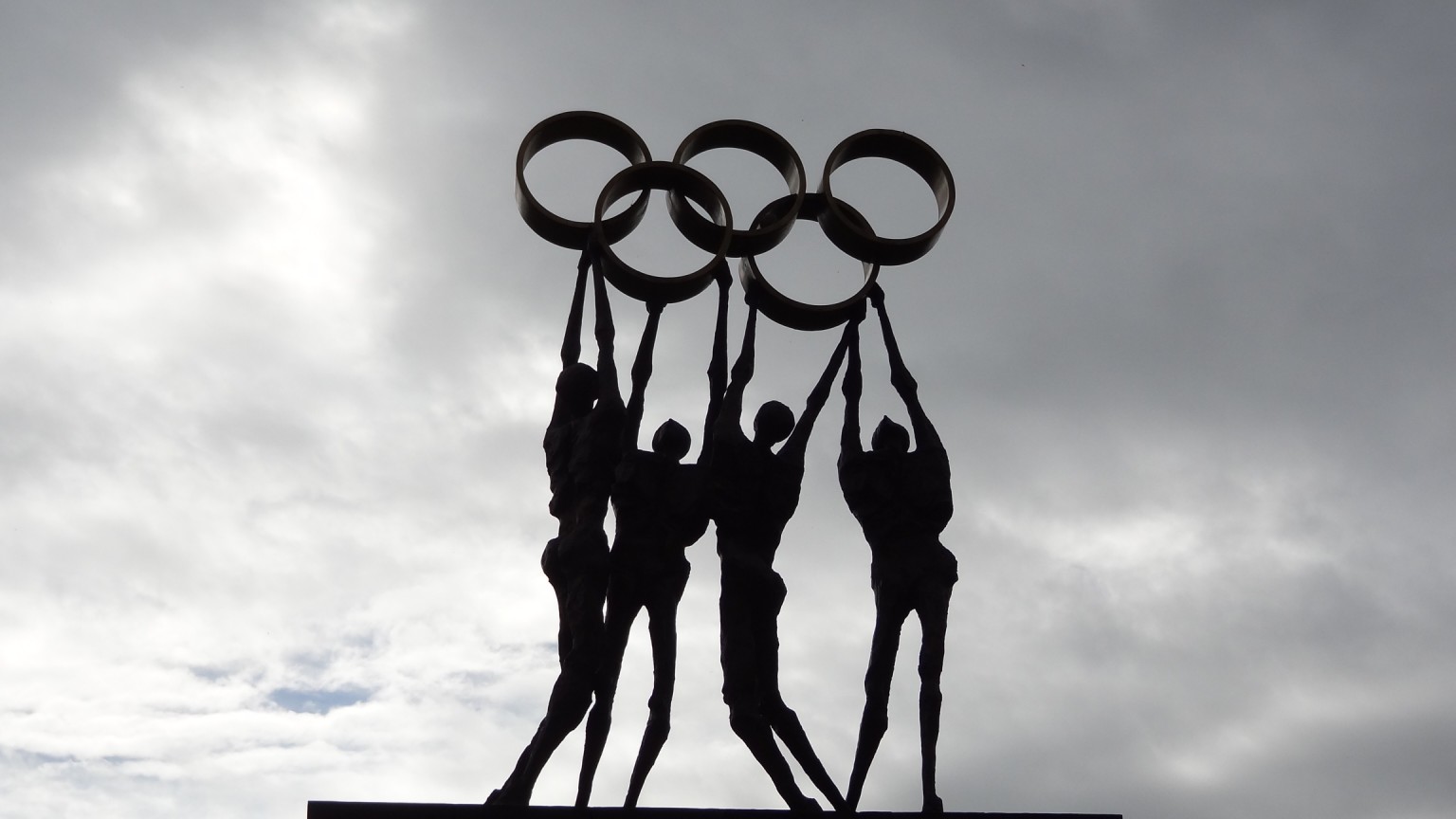
IOC headquarter, Lausanne
The Catholic Church has had eleven popes since 1894. The International Olympic Committee (IOC) had just eight presidents since its birth in 1894.
Eleven popes. Eight IOC presidents. In 119 years.
That says a lot about continuity in the so-called Olympic family.
Elections do not take place very often in the IOC. But this year, on 10 September at the 125th IOC Session in Buenos Aires, the successor to the incumbent Belgian Jacques Rogge (71) will be elected. The members have the choice, in the true sense of the word choice. It’s about the most important post of world sport. Six men want the power and want to be the ninth president in the history of the IOC. Of course the IOC is far from ready for a female president.
The aspirants for the crown in the order in which they announced their candidacies in May 2013:
- Thomas Bach (59) from Germany. Occupation: Attorney, business lobbyist. President of the Arab-German Chamber of Commerce and Industry (Ghorfa), chairman of the Supervisory Board of Michael Weinig AG (e.g.). IOC member since 1991. Currently IOC vice-president, head of Juridical Commission, president of the German Olympic Sports Confederation (DOSB). Olympic champion in 1976 in foil fencing (team).
- Ser Miang Ng (64) from Singapore. Occupation: Entrepreneur, diplomat. Singapore’s ambassador to Norway, former ambassador to Hungary. Chairman of the Board of Directors of NTUC FairPrice and chairman of Network China (e.g.). IOC member since 1998. Currently IOC vice-president. Head of the first Youth Olympic Games 2010 in Singapore. Former sailor.
- Richard Carrión (60) from Puerto Rico. Occupation: Chairman and CEO of the banking holding company Popular, affiliated to different positions with the Federal Reserve Bank of New York (e.g.). IOC member since 1990. Head of IOC’s Finance Commission.
- Ching-Kuo Wu (66) from Taiwan. Occupation: Architect, principal of C.K. Wu & Associates International (e.g.). IOC member since 1988. President of the World Boxing Association AIBA. Former basketball player.
- Denis Oswald (66) from Switzerland. Occupation: Lawyer, long-time director of the International Centre for Sports Studies (CIES) in Neuchâtel. IOC member since 1991. Head of the IOC Coordination Commissions for Athens 2004 and London 2012. President of the World Rowing Association FISA. Long-time head of the Association of Summer Olympic Sports Federations (ASOIF). Olympic bronze medal winner in 1968 as rower in the coxed fours event.
- Sergej Bubka (49) from Ukraine. Occupation: Entrepreneur, president of Rodovid Bank (e.g.). IOC member since 1999. President of the National Olympic Committee of Ukraine. Vice-president of the World Athletics Federation (IAAF). Olympic champion in 1988, six-time world champion and still the world record holder in pole vault.
They all have an extended background in sports administration. Some of them are very rich. Three of them have been Olympic athletes. With Bach and Bubka there are two Olympic champions among the candidates.
In the official Olympic language it has been said that all of them are strong candidates.
But in reality: some are stronger than others.
[kraut project=“https://krautreporter.de/de/projects/94-macht-moneten-marionetten/“]In June 2013 there is one frontrunner, one favourite.
Thomas Bach.
There seems to be one big challenger.
Ser Miang Ng.
There are questions about the strength of Mr. Carrión’s bid. There are other questions about Mr. Bubka’s support among the members.
And there are two candidates obviously without any chance.
Denis Oswald and Ching-Kuo Wu.
This is what it currently looks like.
But on July 4th 2013, when the six gentlemen have had the opportunity to present their programmes to the Extraordinary IOC Session at the Palais de Beaulieu in Lausanne, things may have changed.
Be careful, favourite Bach!
There is already a saying in the Olympic family, among IOC members, presidents of International Federations (IF), influential representatives of National Olympic Committees (NOC), lobbyists and spin doctors.
They are whispering: „ABB“.
They smile. They look like they are part of a conspiracy.
ABB?
What does that mean?
It is an acronym. It stands for:
Anything But Bach.
For a long time it seemed as if Mr. Bach would be virtually unrivalled. Many members believed they would not really have a choice in Buenos Aires. Some did not like that. So, in the fall of 2012, some influential members began to work on alternatives.
Since his appearance at the 1981 Olympic Congress in Baden-Baden, when he was chosen by the then IOC president Juan Antonio Samaranch for the new Athlete’s Commission, Thomas Bach has been considered a possible future IOC president. His patron and former employer Horst Dassler – the former head of the sporting goods company Adidas, founder of corruption giant ISL and string-puller in the Olympic world – is said to have once introduced Bach to Samaranch with the words:
This is Thomas, a future IOC president.
Many long-serving Olympians know are talking about this story.
[Note to readers: See the full comment of Bach’s spokesperson Christian Klaue, head of media at DOSB. He writes: „Thomas Bach was introduced to Juan Antonio Samaranch at the Olympic Congress 1981. At this time he had never met Horst Dassler. So he cannot have been introduced in the way which is described in the article.“ I am gonna check it again and again.]
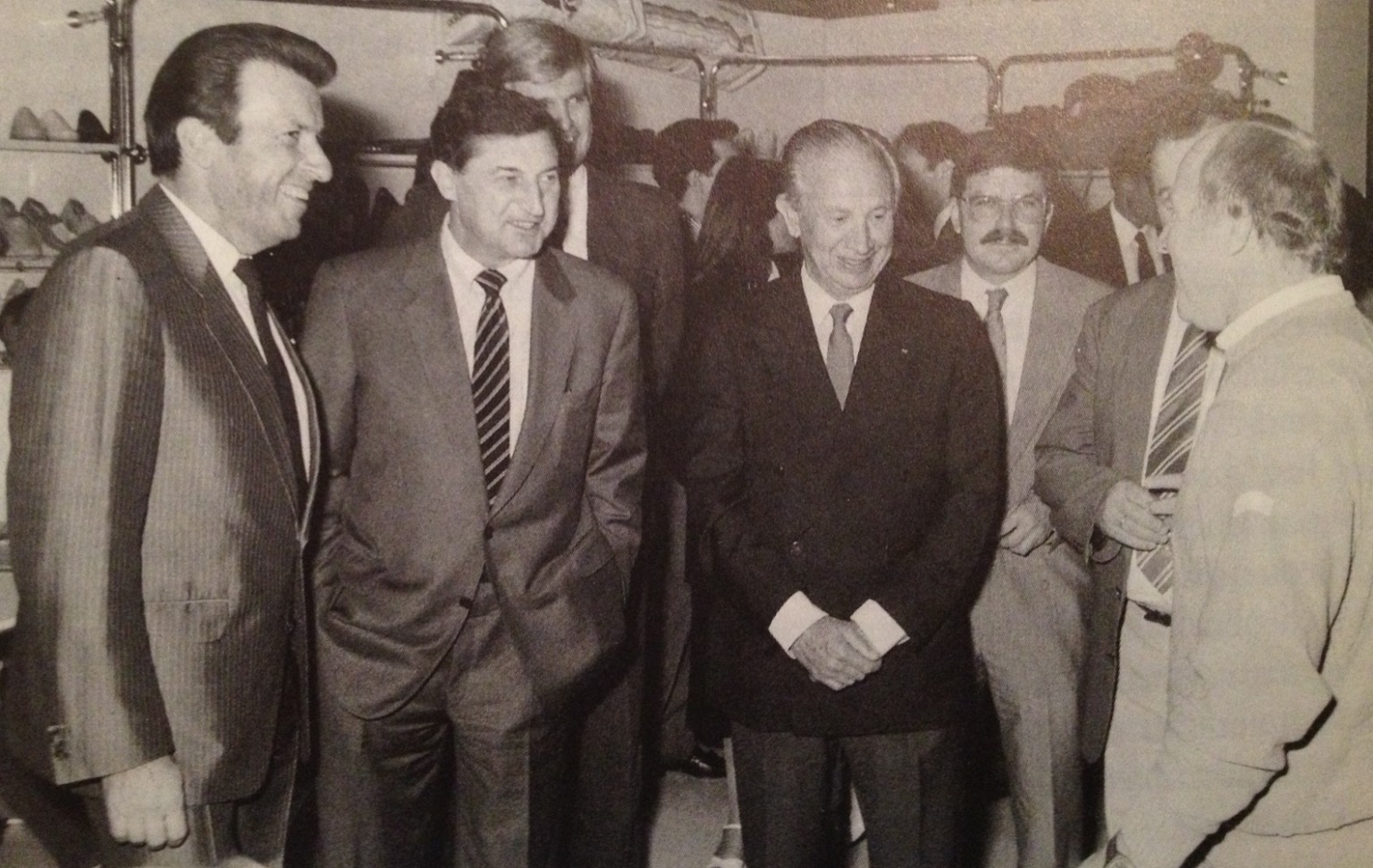
Good old days: Dassler, Samaranch, Bach – (c) Paulheinz Grupe: „Horst Dassler. Revolution im Weltsport“
These days they tell it again and again. Besides Samaranch and Dassler, Bach has had a third major supporter in his career: The long-time IOC vice-president Willi Daume, a major German sports leader. Daume stepped down from the IOC in 1991 in order to pass on his place, his personal membership, to Thomas Bach.
Since then, since the IOC session 1991 in Birmingham, there has been one major goal for Thomas Bach: the presidency.
It is common knowledge in this business.
Bach should currently have the most supporters.
But Bach polarizes the most, too. For example because of his alliances and his proximity to the alleged IOC kingmaker, the powerful Sheikh Ahmed Al-Sabah of Kuwait.
Al-Sabah, former OPEC boss, serves, among other posts, as president of the Olympic Council of Asia (OCA) and president of the Association of National Olympic Committees (ANOC). The Sheikh, an IOC member as well, has been outed as a supporter for Bach.
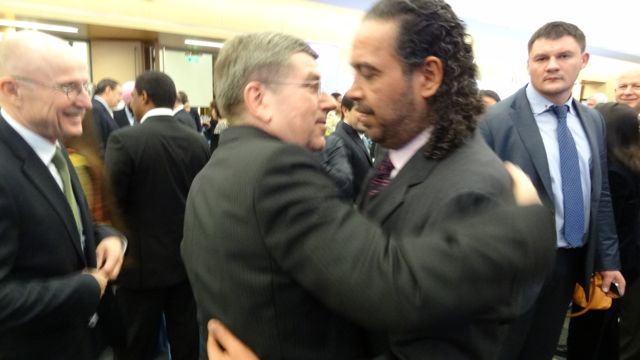
Bisschen unscharf, aber ich schieße meistens schnell aus der Hüfte: ANOC-Meeting im April 2012 in Moskau. Zentral, die Sportskameraden Thomas Bach und Scheich Ahmed Al-Sabah, beobachtet vom UN-Sportadvisor Willi Lemke (l) und einem russischen Sicherheitsmann (r.)
Al-Sabah is repeatedly mentioned in connection with corruption scandals. Some of his staff and allies are even bribe-takers, for example, his long-time confidant and former OCA general secretary Ahmad Muttaleb. According to court documents he has received millions of Swiss francs from the former sports marketing agency ISL/ISMM. Because of another case Muttaleb was excluded from the 2004 Olympic Games in Athens after a decision of the IOC Ethics Commission.
Thomas Bach maintains important business relations to Kuwait. The company Weinig AG from his hometown Tauberbischofsheim, where he acts as chairman of the Advisory Board, is in the hands of Kuwaiti investors. And in 2008, in connection with the worldwide corruption scandal of the German industry giant Siemens, it turned out that Mr. Bach has been a well-paid Siemens lobbyist for many years. In his role as a consultant he has used his contacts to Sheikh Al-Sabah to acquire Kuwaiti investors for Siemens.
Mr. Bach denied any wrongdoing. He said that he always separates private, IOC and business interests.
IOC members are very well aware of stories like this.
In early 2012 the powerful Mexican Mario Vázquez Raña resigned from all his Olympic posts including the ANOC presidency. Vázquez Raña then launched a remarkable attack on Sheikh Al-Sabah, his ANOC-successor. Don Mario claimed the Sheikh had paid bribes to secure support from NOC representatives.
There is no proof of the allegations. The IOC Ethics Commission did not act. Meanwhile Sheikh Al-Sabah is responsible for the IOC development fund worth $ 435 million as he heads the Olympic Solidarity Commission.
Last month Sheikh Al-Sabah caused unrest on the Olympic scene. It was in St. Petersburg, Russia, where the Sheikh helped crown the Romanian Marius Vizer, already president of the International Judo Federation IJF, as president of the union of all world sports federations, SportAccord. In his election manifesto Vizer proposed to stage a United World Championship of all sports. The plan is for the event to take place every four years, starting in 2017. Mr. Vizer says it should not be considered as an attack on the Olympic Games and the IOC business. But in fact, many big players fear exactly this: an attack on the IOC.
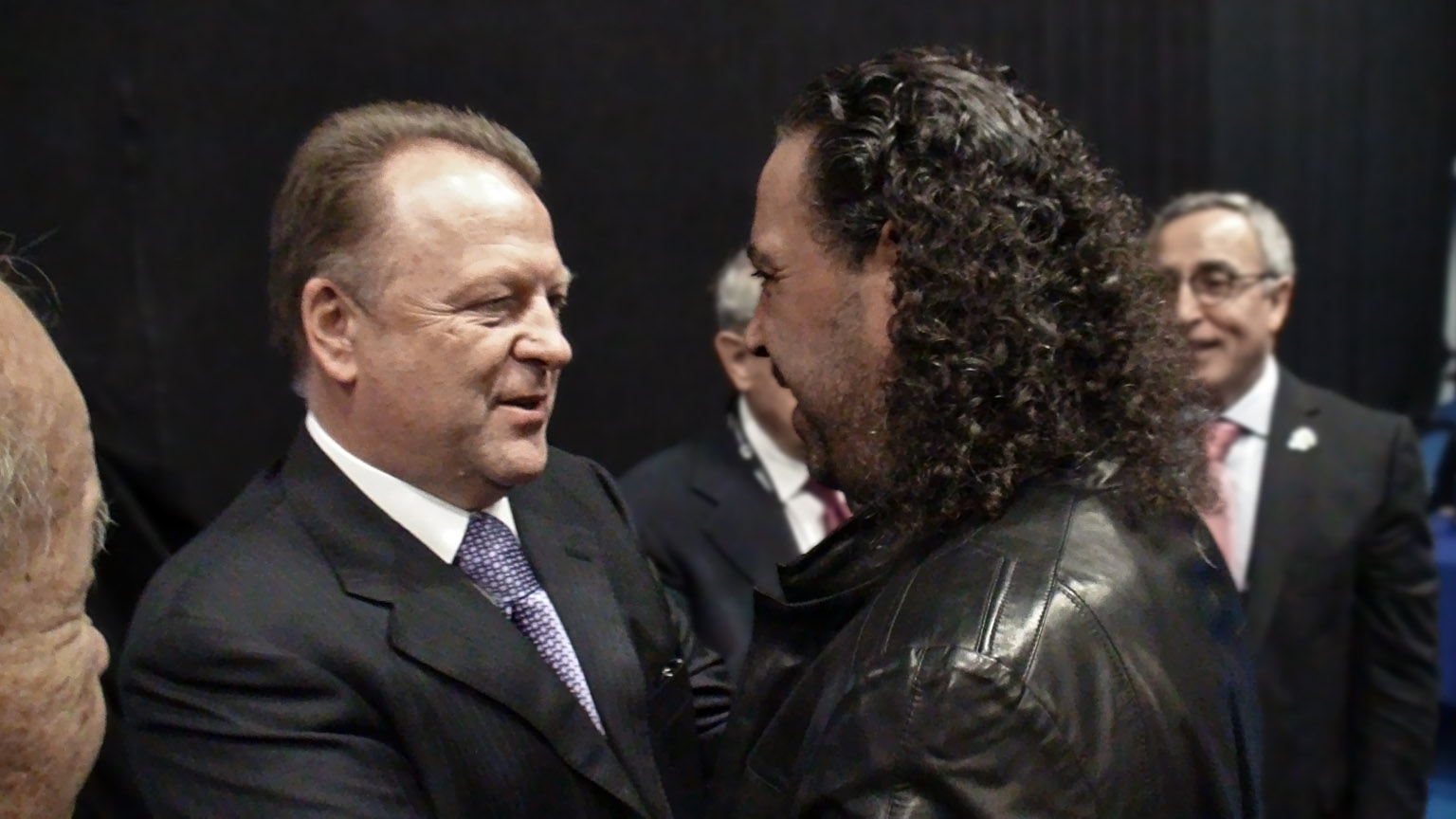
Sportaccord- und IJF-Präsident Marius Vizer, Scheich Ahmed
Sheikh Al-Sabah backs Vizer and Bach.
The power games behind the IOC election and the role of sheikhs and oligarchs in the Olympic movement will be the topic of another analysis on this website soon. For now back to the IOC presidential race…
When many officials, IOC members and IF presidents congratulated Sheikh Al-Sabah on his and Vizer’s victory in the Lenexpo Exhibition Complex in St. Petersburg, they hugged him extensively, and some whispered in his ears:
„This was victory number one. Victory number two will follow.“
September 10th in Buenos Aires?
The SportAccord election in St. Petersburg has shocked many people in the Olympic business, even experienced officials. Who really determines the run of things? That is one of the most important questions right now.
What does Sheikh Al-Sabah want? Does he really have the power to crown the IOC president? He was strong enough to help Vizer and, earlier in May, to help Sheikh Salman Al-Khalifa of Bahrain to become the president of the Asian Football Confederation (AFC).
Denis Oswald, one of the six candidates, was quoted in an extensive interview with Munich based Süddeutsche Zeitung saying about the Sheikh:
It seems as if the candidates he has supported lately have won … This is certainly an advantage [for Bach]. The Sheikh has a lot of influence on the Olympic Committees.“
Oswald added that what is going on „is not exactly my understanding of democracy.“
That was remarkable.
After the quotes have made headlines, Mr. Oswald tried to step back a little bit.
According to the „directions concerning the election of the IOC president“, released by the IOC Ethics Commission in December 2011, Oswald could face problems. Article 20 of these rules says:
- “A candidate may produce no spoken word, written text or representation of any nature likely to harm the image of another candidate or cause him/her prejudice.“
But, on the other hand, the Sheikh should be aware of articles 7, 9 and 11 of the rules:
- Article 7: „No assistance, whether financial, material or in kind, be it direct or indirect, may be given to candidates by an IOC member. If offered such assistance, the candidate concerned has the duty to refuse it and to inform the Ethics Commission accordingly.“
- Article 9: „No candidate may enter into any promise or undertaking to be performed, whatever the timing of such performance, for the direct or indirect benefit of an IOC member, a group of IOC members, an organisation, region or partner.“
- Article 11: „As the voting is secret, IOC members are prohibited individually or collectively, from announcing publicly in any form whatsoever their intention to vote or from any public invitation to vote for a candidate.“
Does the Sheikh – and others – care about such rules?
Fascinating times.
Officially the outgoing president is totally neutral in the election process of his successor.
Officially Jacques Rogge has praised Sheikh Al-Sabah for his work with ANOC. A few days ago, at a party in the IOC head quarter’s garden, right after ANOC’s Extraordinary Congress in Lausanne, Rogge called Al-Sabah’s work „excellent“.
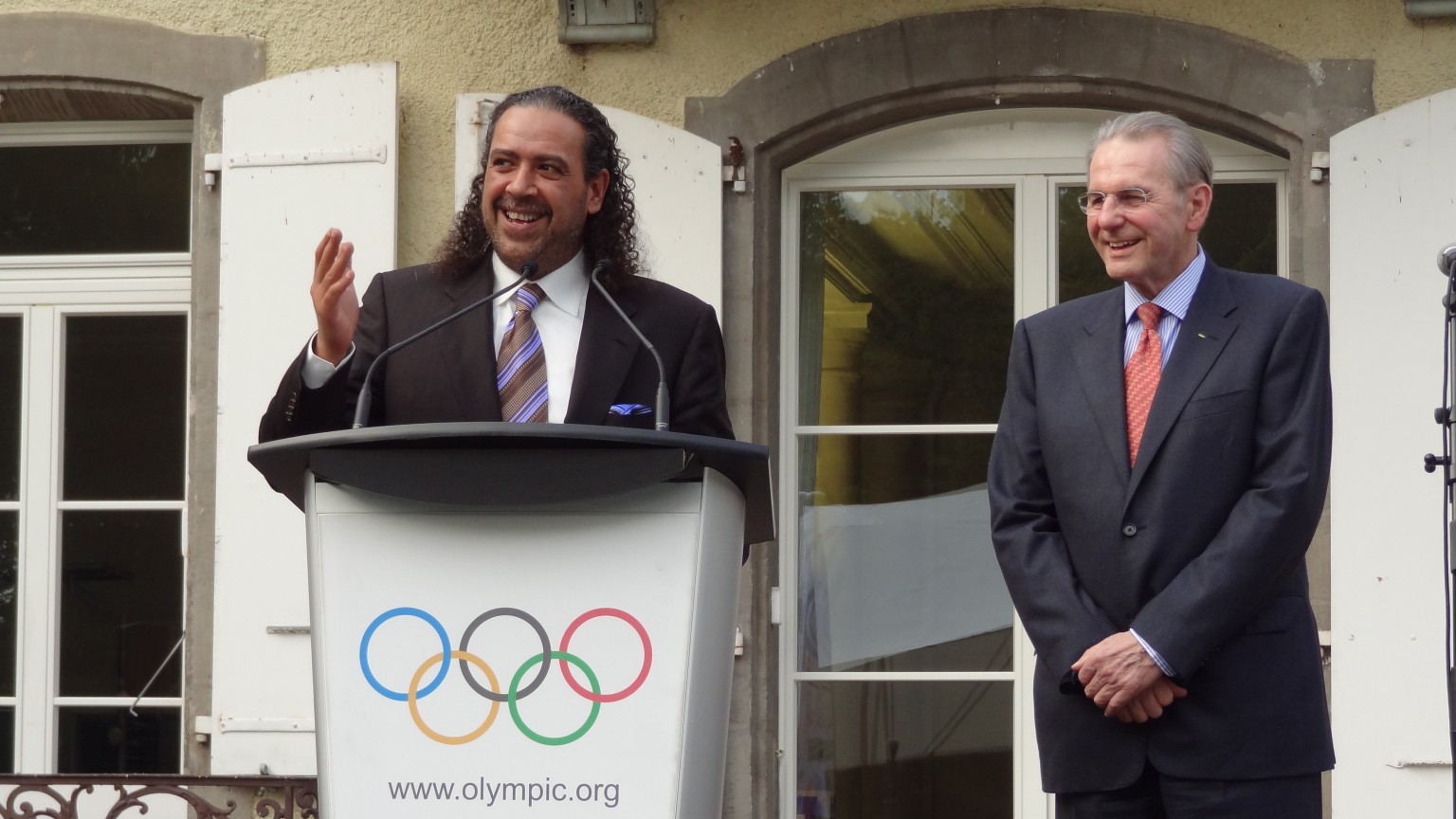
IOC’s garden party, June 2013: Sheikh Ahmed, „President Jacques“, as the Sheikh use to say
Officially Rogge calls Thomas Bach a good and experienced candidate.
Unofficially it has been said that he does not want Bach as his successor.
Some people may consider Rogge a lame duck.
Really? They should not forget: 39 of the current 100 members became IOC members under Rogge’s patronage. They probably owe him something.
Rogge’s influence is discrete.
Jacques Rogge has been very interested in getting a greater number of presidential candidates. The members should really have a choice. Unofficially sources are whispering that Rogge has had talks in his office at Le Château de Vidy with at least two men and convinced them to become candidates.
Rogge is probably more interested in a future IOC president like Richard Carrión, who can be seen as one of his best friends, or in an IOC president like Ser Miang Ng, who organised Rogge’s ‘baby’, the first Youth Olympic Games in Singapore 2010. But Rogge would, of course, never talk about his preferences.
Only one thing is for sure. The more candidates the more options you have.
The Olympic election arithmetic says:
Even if there is a big favourite – everything is possible if you can avoid a majority of this favourite in the first round.
The other way around: even if a candidate gets the most votes in the first round, he can lose in one of the next rounds.
Be careful, Mr. Bach.
There have been alarming examples in some of the big IOC elections over the last decade where Olympic Games were awarded. People are talking about them and comparing them with the upcoming presidential elections:
- 2010 Olympic Winter Games: In 2003 at the IOC session in Prague, PyeongChang was close to a first round victory against Vancouver – but lost in the second round. All votes from Salzburg (last in the first round) went to Vancouver.
- 2014 Olympic Winter Games: In 2007 at the IOC session in Guatemala, PyeongChang again had the most votes in the first round – but lost in the second round against Sochi.
- 2016 Olympic Summer Games: In 2009 at the IOC session in Copenhagen, Madrid had the most votes in the first round – but lost against Rio de Janeiro in the third round.
- Something similar may happen at the presidential election in Buenos Aires.
ABB? Anything But Bach?
There are 100 active members right now. [The extraordinary IOC session, next week in Lausanne, will probably include for more athletes after the long juridical process following the athlete’s elections at the London 2012 games.]
One question is about the membership of Willem-Alexander, the new King of the Netherlands, who has announced that he is leaving the IOC but is still registered as a member on the IOC website. Aonther questions is about Sheikh Tamim, the new Emir of Qatar. The outgoing president, Jacques Rogge, will traditionally not vote. A few members, as always, may not attend the session. So it seems that 49 votes are needed to become the 9th IOC president – maybe even less.
[Surely less, since the six candidates will not vote as long as they are electable. Their country fellows can not vote. At least two other members will not attend the Buenos Aires session. This is an update to the original version of the article. I am working on another story about the membership/votes, will be published soon, but in German :)]
Less than 49 votes.
Let’s look at the members. Where are they from?
- Europe has the largest number of IOC members: 41 members coming from the old continent.
- Asia: 26 members.
- The Americas: 18 members.
- Africa: 10 members.
- Australia and Oceania: 5 members.
But: Do the members vote on continental blocks?
Definitely not.
The fact that seven of the eight IOC presidents in history have been Europeans does not seem to be very important right now. But it could create a momentum later in the race.
The only president from outside Europe was Avery Brundage (USA) who reigned between 1952 and 1972. But there has never been an IOC president from Asia.
So: Why another European like Bach, Oswald or Bubka? Why the next American like Carrión? Why not the first Asian IOC president?
Questions like this will not be decisive but they will be considered among the members.
And: The election of the host of the Olympic Games in 2020, which takes place on September 7th in Buenos Aires, will definitely be connected with the election of the new IOC president. Tokyo, Istanbul and Madrid are the three candidate cities.
There are some theories. Take this:
The Sheikh is behind Bach. And he wants to avoid Istanbul as the host city in 2020. Instead of the Turkish bid he favours an Olympic Games at the Persian Gulf in 2024 or 2028. A theory. No proof. Reading in the Olympic coffee grounds.
So, is it a coincidence or not that the leader of Madrid’s 2020 bid is always to be seen near the Sheikh’s camp?
There are not so many coincidences in the sport-political world.
Stay tuned.
It is going to be thrilling this summer.
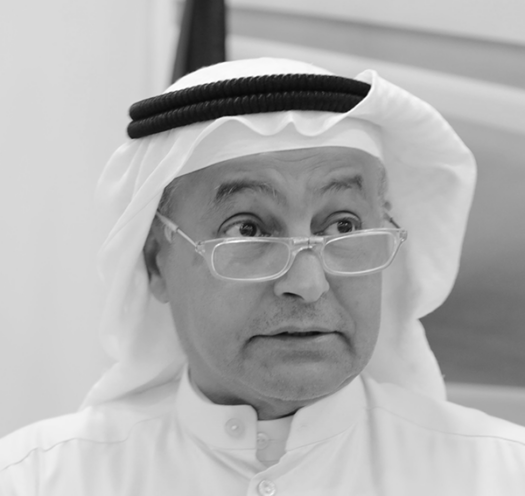

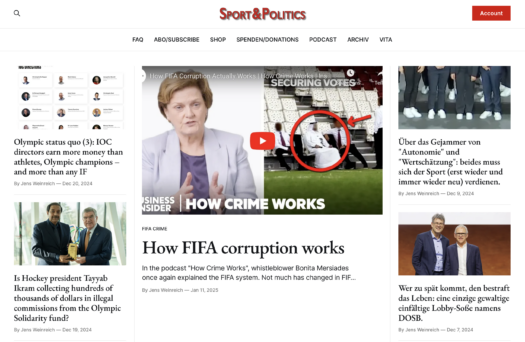
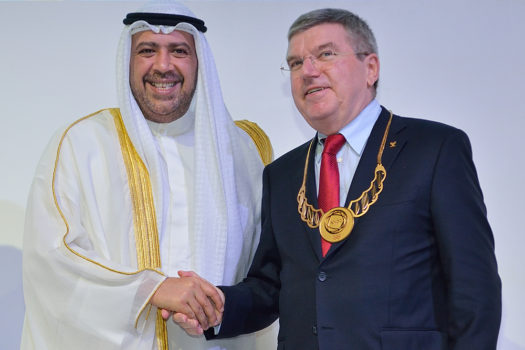
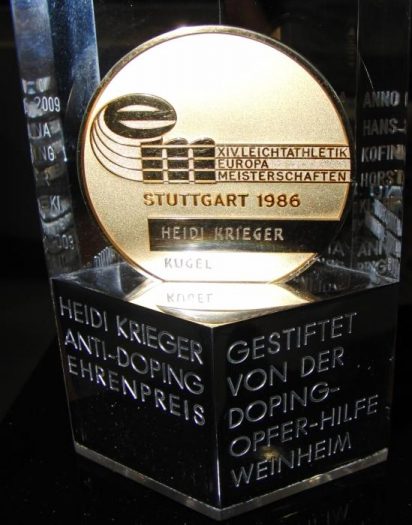
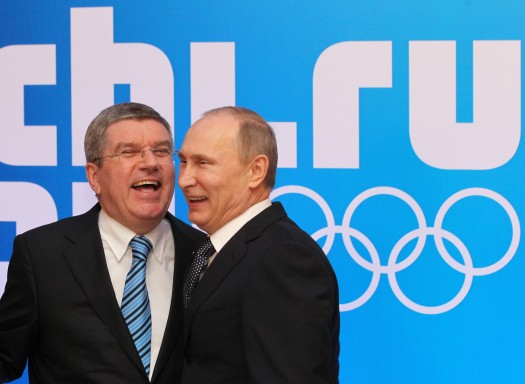
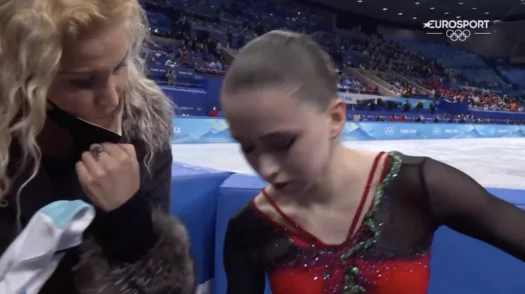
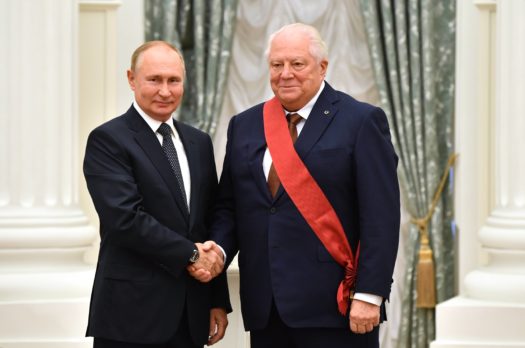
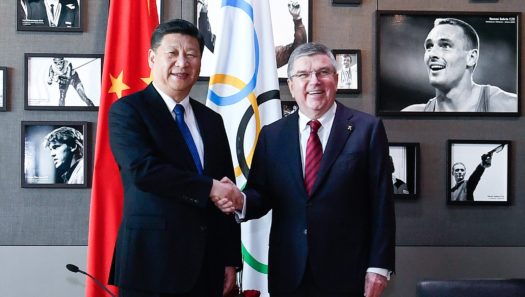
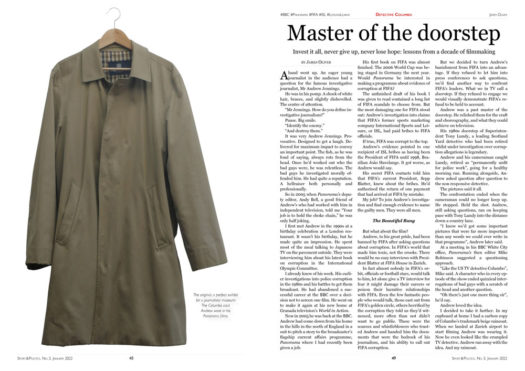
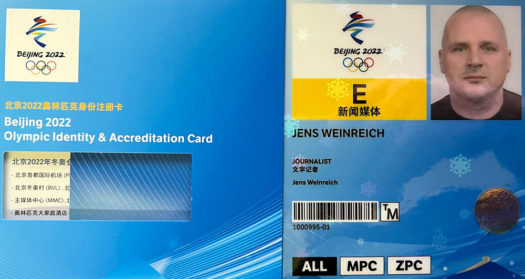
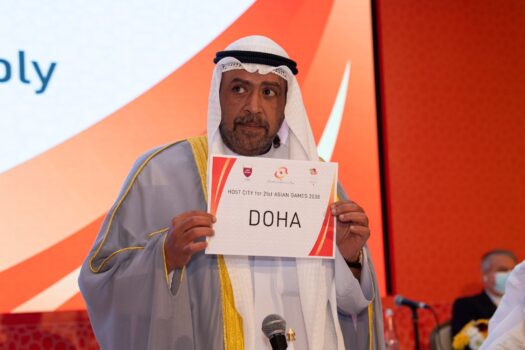
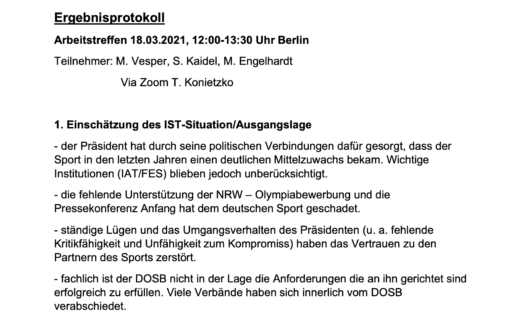
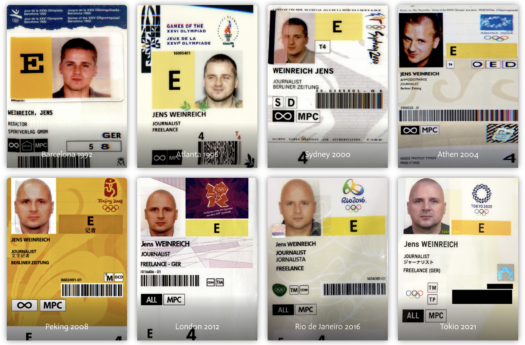
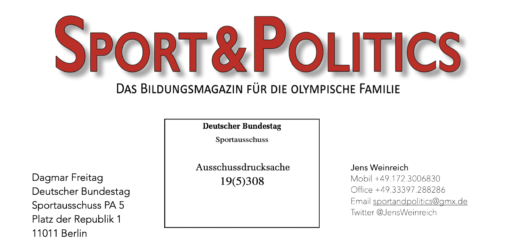
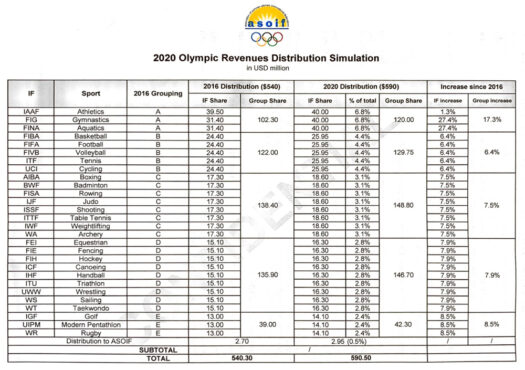
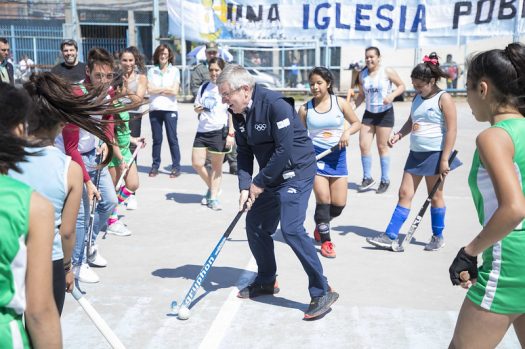
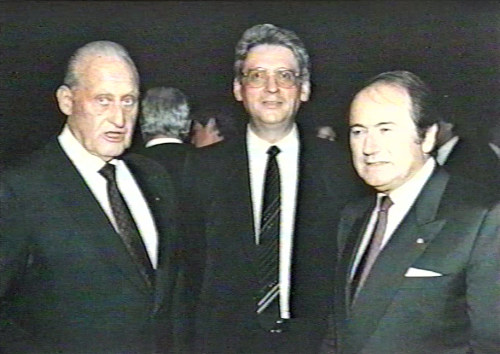
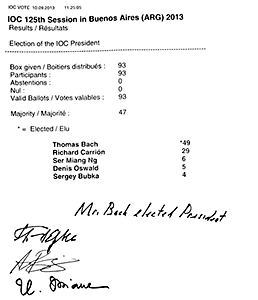
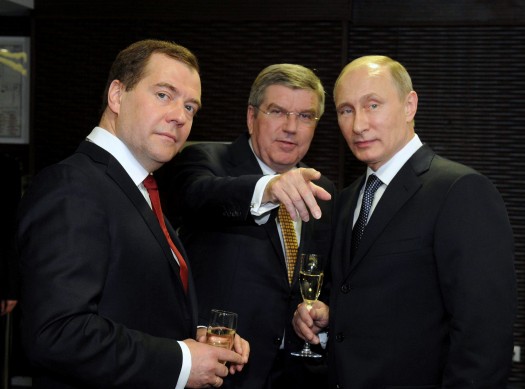
Unfortunately this piece is just repeating some old stories and ignoring some well known essential facts. I would like to give some examples.
– Thomas Bach was introduced to Juan Antonio Samaranch at the Olympic Congress 1981. At this time he had never met Horst Dassler. So he cannot have been introduced in the way which is described in the article.
– Thomas Bach has never worked for ISL. ISL was managed completely independent from adidas by different managers. The ISL scandal now in discussion refers to the years from 1989 until 2001. Thomas Bach was Director for Promotion at adidas from October 1985 – December 1987. Horst Dassler passed away in April 1987 after a long illness. If you wish to know more about Thomas Bach’s business career please see his CV: http://www.dosb.de/fileadmin/Bilder_allgemein/Praesidium/lebenslauf_bach_thomas_englisch.pdf
– Two independent bodies analyzed Thomas Bach’s consultancy for Siemens. In 2008 the independent US law firm Debevois checked for Siemens all consultancy contracts. The conclusion was: There is no doubt about the integrity of Thomas Bach. The IOC Ethics Commission which was duly informed beforehand about the consultancy agreement also confirmed in 2008 that Thomas Bach had been acting all the time in full compliance with the IOC Code of Ethics.
– Concerning Mr. Vizer’s proposal of “United World Championships” Thomas Bach already said in St. Petersburg: “This idea is already unrealistic because it is obviously against the intention of ASOIF. Recently we had a meeting among the stakeholders of the Olympic Movement led by IOC President Jacques Rogge. When discussing the calendar, ASOIF – which represents the most important federations – made it very clear that it is against this idea. I definitely think that we have to ensure that the uniqueness of the Olympic Games is not diluted by other events. I believe that this is common sense among all IOC Members. Should it come to discussions between the IOC and Sportaccord, I am sure that all participants, including the International Federations, will be fully aware of the importance of successful Olympic Games for their own future. Also I think it would not only be not feasible, it would also be against all requirements of our modern world, like sustainability, legacy and solidarity.”
Christian Klaue
Head of media DOSB and spokesperson of Thomas Bach
Of course, sports officials refused to accept bribes before 1989. Jens, how could you forget?
Offenbar war das 1981 doch nicht so wie beschrieben. Oder war es gar anders herum? Sameranch hat diese Worte bemüht, um T.Bach einem gewissen H.Dassler vorzustellen?
Das wäre ja fast noch interessanter…
Auf jeden Fall finde ich #1 bemerkenswert. Eine Stimme aus der „crowd“, die vorsorglich schon mal das EBook korrigieren möchte…
Zum Thema ABB: Könnte dieses „Gerücht“ nicht aus dem Bach Lager sein, weil man dort Angst hat, dass viele IOC-Mitglieder die Wahl Bachs als beschlossene Sache ansehen? Vielleicht wollen sie die Jungs bei der Stange halten, indem sie die Gegner ein bisschen höher handeln (ohne natürlich einen bestimmten hervorzuheben)?
Dear Christian,
I added a part of your comment in the article on my blog (introducing Dassler/Bach/JAS?).
On the other hand: I can not see myself „ignoring some well known essential facts“.
And I will, as you are saying, surely „repeat some old stories“ this year, but I am trying to repeat it in a new light and with even better research than I have done over the past 20 years. Promise.
Of course I do know that Mr. Bach has never worked for ISL. I have never claimed he did. But he has been a part of the so called (and probably unofficial) sport political department of Adidas. Other members in this group alongside Horst Dassler have been Jean-Marie Weber, John Boulter, Anwar Chowdhry etc.
Unfortunately I have to correct you: The ISL scandal does not only refers the years from 1989 to 2001. It is very clear, even in court documents, that ISL has established the bribery system in the Olympic world in early 1980s.
Cheers.
Jens
@ Thomas Seeholzer #4: Das war meine erste Vermutung, auch um mich selbst zu schützen. Nachdem ich dazu aber etliche Leute gehört und gesprochen habe, glaube ich das nicht mehr.
Pingback: #crowdfunding update 1: Es wird ein Buch : sport and politics
@ Christian Klaue,
don’t misunderstand my question as a tit-for-tat-response. Some of your objections are reasonable and cogent, as it would appear to me.
But I’m surprised that you introduce yourself as „spokesperson for Thomas Bach“, the more so as this article doesn’t refer to Bach’s DOSB presidency. How is this in compliance with above mentioned IOC „Directions concerning the election of the IOC President“, since your employer DOSB is part of the Olympic Movement?
So: How does head of DOSB media, paid by an Olympic Movement constituent, separate itself from the spokesperson for a privately running candidate? „Vielfältige Lebenssachverhalte“?
Happy to get your response.
I am the spokesperson of DOSB President Thomas Bach since I started my job in November 2009. See our initial press release from October 2009: http://newsletter.dosb.de/newsletter/newsletter.php?id=1510&html=1. I am used to getting all the media questions for Mr. Bach – no matter if they are nationally or internationally. This has not changed after the announcement in May and does not need to change since the candidates for the IOC presidency don’t have to give up their official positions in NOCs or IFs, nor their work.
ich dachte, bachs dosb-präsidentschaft und seine vergangenheit als dassler-lobbyist stünden in keiner verbindung? *lach*
dann wäre es auch nicht klaues aufgabe als dosb-sprecher, bachs zwielichtige vergangenheit zu verteidigen.
ach, der scheich wirds schon richten. der hat die meiste kohle, um stimmen zu kaufen. dafür wird der aalglatte bach ihm später mindestens hübsche verwertungsrechte für den asiatischen markt zuschanzen, wetten?
Christian,
I guess, Grit’s question points to more to your employer rather to how many roles you have. As the press release suggests from my point of view, you are employed by the DOSB. And amongst your roles are the spokesperson activities for both the DOSB itself and Mr Bach.
Well, that this has not changed since 2009 is exactly the question as I understood from Grit.
The reason for this as I see it is the following: How can you ensure nobody, who reads your messages or sees you alongside Mr Bach in his role as candidate for the IOC presidency, mixes this up with your responsibilities inside the DOSB? I think, if people see this, there could be a chance these people would think, the DOSB supports your activity as Mr Bach’s spokesperson and with that – either through direct payroll or simply by accepting you taking time off your role as spokesperson of the DOSB – supporting the candidancy of Mr Bach.
Grit, if I have misstated anything, I am sorry for doing so. This is a mere interpretation of your and Christian’s comment.
Grit Hartmann in der Berliner Zeitung: Streit um IOC-Vorsitz: Im Schnittbereich
vielfältige lebenssachverhalte. wer von den scheichs stimmen für sich kaufen lassen will, muss lieb zu den scheichs sein. demnächst nur noch halal-bier im olympiastadion…
Pingback: live-Blog aus Lausanne : sport and politics
Pingback: Bildergeschichte vom IOC (3): “Mamma mia, what an exhibition!” : sport and politics
Pingback: Masters of the IOC universe: Putin, Gazprom, oligarchs and sheikhs : sport and politics
Pingback: From Russia with love (III): live-Blog mit Usain Bolt, Wasserstandsmeldungen zum IOC-Wettrennen : sport and politics
Pingback: IOC-Countdown (29 days to go): Happy birthday, Sheikh Ahmad! : sport and politics
@ Christian Klaue: Du schreibst …
Ich würde gern die entsprechenden Dokumente sehen.
Pingback: IOC-Countdown (26 Tage): IOC-Buchprojekt, update 3 oder: wie die Crowd Journalismus und (manchmal) exklusive Informationen finanzieren kann : sport and politics